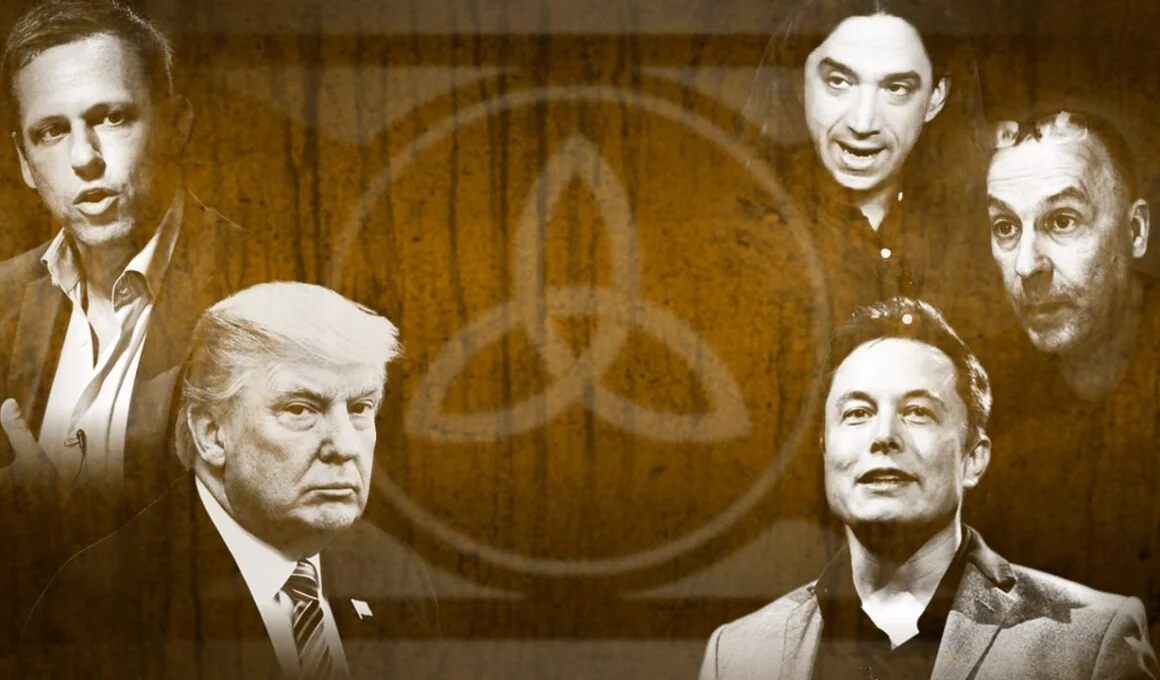The Dark MAGA Gov-Corp Technate — Part 1

```html
Decoding "Dark MAGA": The Rise of the Technocratic Technate
Unmasking the Meaning Behind the Buzzwords
What do "Dark MAGA," "Technocracy," and the "Dark Enlightenment" even mean? These aren't just trendy buzzwords; they represent potent political philosophies embraced by some of the world's most influential figures. Understanding these interconnected ideologies is crucial, as they are shaping the very world order we inhabit. If we fail to grasp the thinking of these power brokers, we risk sleepwalking into a future not of our choosing.
Elon Musk's Technocratic Roots
Elon Musk, the self-proclaimed "TechnoKing," isn't just playing word games. His family history reveals a deep connection to Technocracy Inc., a movement advocating for a society governed by technical experts. His grandfather, Joshua Haldeman, was a prominent figure in the organization, even facing legal repercussions for his involvement. This heritage, combined with Musk's own pronouncements on the "Martian Technocracy" and Universal Basic Income, paints a clear picture of his political leanings.
This isn't just about Mars; it's about Earth. Musk's actions, including his substantial investment in Donald Trump's presidential campaigns and his leadership of the Department of Government Efficiency (DOGE), suggest a concerted effort to implement technocratic principles within the US government.
The Technocratic Vision: A Society Engineered for "Efficiency"
Technocracy envisions a world where technology solves all societal problems. This ideology, inspired by figures like Frederick Winslow Taylor and Thorstein Veblen, proposes a radical restructuring of society into "Functional Sequences" managed by technical experts. This system, known as a "Technate," operates on a continental scale, abolishing nation-states and centralizing control of all resources.
"The science of social engineering, the scientific operation of the entire social mechanism to produce and distribute goods and services to the entire population." - The Technocrat, 1937
Within the Technate, citizens are reduced to "human animals," mere cogs in the machine, their behavior controlled through conditioning and monitored through a system of "Energy Certificates." This chilling vision reveals the potential for Technocracy to devolve into a totalitarian nightmare.
The Dark Enlightenment: Accelerating Towards Corporate Monarchy
The Dark Enlightenment, or neoreactionary movement (NRx), shares Technocracy's focus on efficiency but targets a different enemy: "the Cathedral." This term refers to the informal network of progressive influence within academia, media, and government. Neoreactionaries like Curtis Yarvin (Mencius Moldbug) and Nick Land argue that the Cathedral stifles innovation and must be dismantled through "creative destruction."
"Deterritorialization is the only thing accelerationism has ever really talked about." - Nick Land, 2016
Their proposed solution is "neocameralism," a system where the state is run like a corporation (gov-corp) with a CEO at the helm, maximizing shareholder value. This vision, while superficially appealing to those disillusioned with traditional politics, ultimately empowers the very oligarchs it claims to challenge.
Darkly Enlightened Christianity: A Disturbing Twist on Faith
The neoreactionary movement's embrace of Christianity adds another layer of complexity. Figures like Peter Thiel interpret Christian theology through the lens of René Girard's mimetic theory, emphasizing the inherent violence of human nature and the necessity of a scapegoat. This worldview justifies a "correct mixture of violence and peace" in pursuit of a divinely ordained order.
"[Of] the Ten Commandments, the two most important are the first and last on the list. The first commandment is, you should worship God. The tenth commandment is, you should not covet the things that belong to your neighbor." - Peter Thiel
This interpretation of Christianity appears to prioritize wealth creation and technological advancement above traditional Christian values like compassion and social justice, raising serious ethical questions about the motives and actions of those who espouse it.
From Ideology to Policy: The Rise of Stakeholder Capitalism
These seemingly fringe ideologies are already influencing real-world policies. Stakeholder capitalism, championed by the World Economic Forum, promotes public-private partnerships and "citizen assemblies" that purportedly empower citizens but ultimately centralize control in the hands of corporations and select stakeholders. This system paves the way for a gov-corp Technocracy, where the lines between public and private power become increasingly blurred.